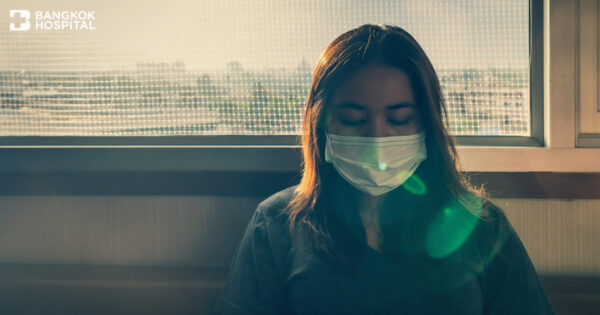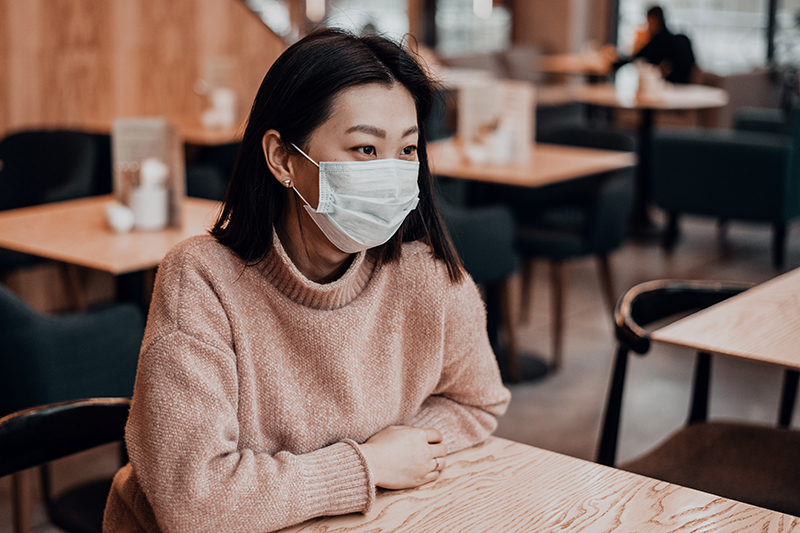10 facts about novel coronavirus
7 minute(s) read

Share
Coronaviruses are defined as a large family of viruses that cause illness ranging from the common cold to more severe diseases. Common signs of coronavirus infection include respiratory symptoms, fever, cough, shortness of breath and breathing difficulties. In more severe cases, infection can cause pneumonia, severe acute respiratory syndrome, kidney failure and even death. Examples of coronaviruses include Middle East Respiratory Syndrome coronavirus (MERS-CoV) and Severe Acute Respiratory Syndrome coronavirus (SARS-CoV). A novel coronavirus, named COVID-19 is a new strain that has not been previously identified in humans. The current outbreak of a novel coronavirus disease that was first reported from Wuhan, China has becoming one of the most worrisome issues in global healthcare since numbers of infected patients have been reported in several countries across the world. Understanding about facts of novel coronavirus and appropriate prevention greatly help to minimize the risk of infections. Get to know more about novel coronavirus.
1. How can infected patients be identified?
Regarding a novel coronavirus outbreak, it has been declared a Public Health Emergency of International Concern by the World Health Organization (WHO). Recently, health authorities have been working intensively to contain the spread of the disease since its discovery in China in December, 2019. However, particularly in Thailand, the number of infected patients is considerably low and infectious situation is under control since the highly strict immigration control has been implemented with proactive screening protocol. The signs and symptoms of novel coronavirus disease vary ranging from mild to severe conditions. Manifestations include fever, sore throat, pneumonitis, pneumonia and even death. The time from exposure to onset of symptoms is estimated at 2 to 10 days by WHO and 2 to 14 days by the US Centers for Disease Control and Prevention (CDC). Suspected patients will be confined based on the screening protocol if they have potential contributing factors including previous traveling history to endemic areas especially Wuhan or any part of China, exposure to infected patients with presenting signs and symptoms. If infection is suspected, patients will be individually isolated into the negative pressure room for further investigations and treatments if required. All healthcare providers such as doctors and nurses safely and carefully handle infected patients while wearing personal protective equipment (PPE).
2. What are signs and symptoms of novel coronavirus disease?
To isolate suspected cases of a novel coronavirus disease, there are 2 criteria, including:
- Previous traveling history to Wuhan or other specified endemic areas within the last 14 days or previous exposure to infected patients with a novel coronavirus disease.
- Presenting with signs and symptoms e.g. common cold symptoms, runny nose, coughing, sneezing, muscle pain, fatigue, breathing difficulties with or without fever.
If patients have possessed these criteria, isolation to further investigate a novel coronavirus disease and other possible causes is strongly indicated. Vice versa, if these criteria are both absent, there is no requirement for being isolated.
3. Does wearing masks entirely help to prevent a novel coronavirus infection?
Although a novel coronavirus has shown severe clinical symptoms and complications especially in patients with impaired immune system, the principal mode of transmission, similar to other coronaviruses, is thought to be aerosol droplets expelled when an infected individual coughs or sneezes within a range of 6 feet (or approximately 1.8 meters). In addition, coronavirus droplets stay suspended in the air for a short time. It can also stay viable and contagious on a metal, glass or plastic surface for up to several days. In addition, close contact with an infectious person such as shaking hands or touching a doorknob, tabletop or other surfaces can also transmit viruses to the others.
Recommended measures to prevent infection depend on the likelihood of a person coming into contact with the disease. Those who are infected must wear a surgical mask, especially when in public in order to reduce viral transmission. By limiting the volume and travel distance of expiratory droplets dispersed when sneezing, coughing or talking, masks can serve a public health benefit in reducing transmission by those unknowingly infected. Masks are also recommended for those who have to take care of someone who may have the disease. Besides wearing masks in healthy people, other recommendations include frequent washing of hands with soap and water or alcohol-based hand rub and not touching one’s eyes, nose or mouth unless the hands are clean. In addition, People in high risk areas should take additional precautions even people who are not displaying symptoms.
4. Is coronavirus disease curable?
Even though a novel coronavirus disease seems to be frightening due to its outbreak, a novel coronavirus disease, in fact, is self-limiting especially if individual’s immune system works properly. Many of those who died had underlying conditions such as diabetes, cardiovascular disease and being the elderly that impaired their immune systems. Recently, there is no definite treatment for a novel coronavirus disease. Principal treatments involve symptomatic or supportive approaches based primarily on a wide range of symptoms and complications such as mild or severe pneumonia, kidney failure and Acute Respiratory Distress Syndrome. If severe complications such as sepsis and septic shock present, intensive care is highly needed. The current medications that have been used to treat a novel coronavirus disease include Antiretroviral Therapy (ART) used in HIV patients and certain antiviral drugs used to attack flu virus.
5. Is there any vaccine acting against coronavirus disease?
Even though science is racing to develop vaccines to blunt the outbreak’s impact. Currently, there is no specific vaccine to prevent infections against novel coronavirus disease. To clarify the myth, influenza vaccines or flu shots are vaccines that only protect against infection caused by influenza viruses, NOT coronaviruses. Therefore being vaccinated with influenza vaccines does not help minimizing the risks of novel coronavirus infections. In addition, vaccination schedule must be followed the medical recommendations.
6. Does pneumococcal vaccine help to prevent a novel coronavirus disease? Do elderly people essentially require pneumococcal vaccine?
Pneumococcal vaccines can protect against pneumococcal disease, which is any type of infection caused by bacteria –Streptococcus pneumoniae. Their use can prevent some cases of pneumonia, meningitis and sepsis. There are two types of pneumococcal vaccines: conjugate vaccines and polysaccharide vaccines. These vaccines are essentially recommended in patients with impaired immune functions such as the elderly and patients diagnosed with chronic kidney disease. Pneumococcal vaccines, however, do not have any roles to act against a novel coronavirus disease.
7. Is the treatment plan of a novel coronavirus disease similar to the treatment of influenza?
Although a novel coronavirus belongs to coronaviruses, it may cause more severe symptoms than other members in the same family do. Life-threatening conditions caused by a novel coronavirus might include lower respiratory tract infections e.g. pneumonia, pneumonitis, sepsis and septic shock. Immunocompromized hosts such as the elderly with certain underlying diseases are at greater risks to develop fatal conditions. If infection is suspected, isolation must be conducted as the first priority in order to confine the transmission to the others. Primary treatments mainly involve supportive or symptomatic care. Intensive care unit might required if patients manifest severe complications.
8. How to prevent coronavirus infection?
Recommendations to prevent a novel coronavirus disease include frequent washing of hands with soap and water or alcohol-based hand rub, avoiding touching facial area e.g. eyes, nose and mouth unless the hands are clean to prevent viral spreading to respiratory system and avoiding close contact to suspected patients. In addition, wearing masks is highly advised for those who are infected, especially when in public in order to reduce viral transmission. Masks are also recommended for those who have to take care of someone who may have the disease.
9. How to properly wear and dispose of used masks?
The WHO advises the following practices for mask usage:
- Place mask carefully to cover mouth and nose and tie securely to minimize any gaps between the face and the mask. While in use, avoid touching the mask;
- Remove the mask by using appropriate technique, do not touch the front but remove the lace from behind;
- After removal or whenever inadvertently touch a used mask, clean hands by using an alcohol-based hand rub or soap and water if visibly soiled; and
- Do not re-use single-use masks. Discard single-use masks after each use and dispose of them immediately upon removal. The inner side of used masks must be folded and thrown away into infectious waste.
10. Is hand cleaning with alcohol-based hand rub as effective as cleaning with soap and water?
The effectiveness of alcohol-based hand rub or hand sanitizer with at least 60% – 70% alcohol is considerably equal to soap and water. The concentration of alcohol can be noticed from the attached labels.
If any sign and symptom of a novel coronavirus disease presents, accompanied with previous traveling history to endemic areas, medical assistance provided by competent hospitals must be immediately sought. Timely diagnosis and appropriate treatments enable a novel coronavirus disease to be kept under control while increasing chances of being cured. In addition, effective treatments help to confine the viral transmission. Since trust does matter, Bangkok Hospital is 24-hr ready to deliver prompt care with isolation areas supported by multidisciplinary team, assuring the best possible outcomes while reducing unnecessary fear and panic.
For more information, please contact
Share
